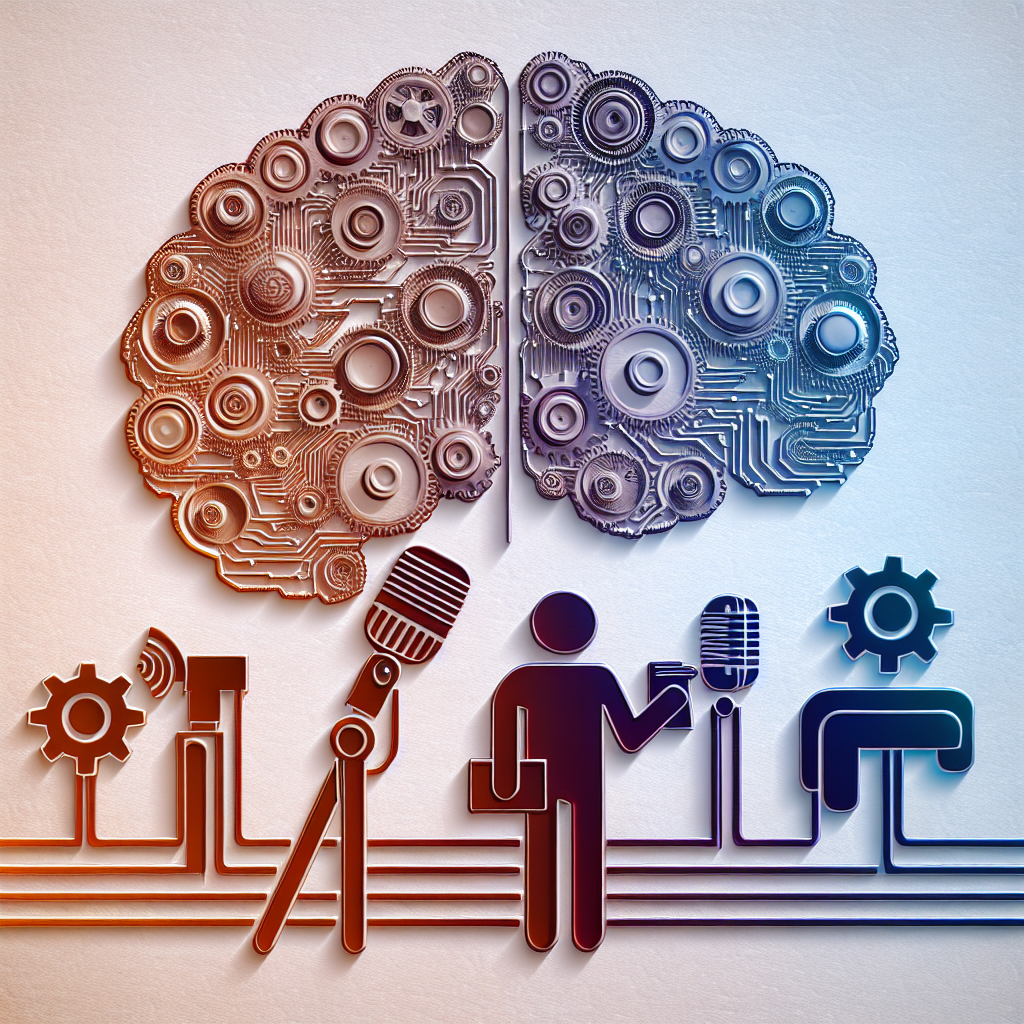The Role of AI in Citizen Journalism
In recent years, the rise of citizen journalism has transformed the way news is reported and consumed. With the proliferation of smartphones and social media platforms, ordinary individuals now have the ability to capture and share breaking news events in real-time. This democratization of news has empowered citizens to become active participants in the news-gathering process, bypassing traditional media gatekeepers and bringing attention to important issues that may otherwise go unreported.
One of the key drivers of this revolution in journalism is the advancement of artificial intelligence (AI) technology. AI has been instrumental in enabling citizen journalists to sift through vast amounts of data, identify trends and patterns, and produce high-quality content at a fraction of the time and cost of traditional newsrooms. In this article, we will explore the role of AI in citizen journalism and the impact it has had on the media landscape.
AI-Powered Content Creation
One of the most significant ways AI is transforming citizen journalism is through content creation. AI algorithms can now generate articles, videos, and other multimedia content that is indistinguishable from human-produced content. This has enabled citizen journalists to quickly produce high-quality news reports without the need for extensive training or resources.
For example, AI-powered tools like GPT-3 have been used to write news articles, create infographics, and even edit videos. These tools use natural language processing and machine learning algorithms to analyze data, identify key points, and generate coherent and engaging content. This has greatly expanded the capabilities of citizen journalists, allowing them to cover a wide range of topics and reach a larger audience than ever before.
AI-Powered Fact-Checking
In addition to content creation, AI has also played a crucial role in fact-checking and verifying information in citizen journalism. With the proliferation of fake news and misinformation on social media platforms, it has become increasingly important to verify the accuracy of news reports before they are shared with the public.
AI-powered fact-checking tools use machine learning algorithms to analyze the credibility of sources, detect inconsistencies in information, and flag potentially false or misleading content. These tools can quickly scan through vast amounts of data and provide citizen journalists with real-time feedback on the accuracy of their reports, helping to ensure that only verified information is shared with the public.
AI-Powered Data Analysis
Another key area where AI is transforming citizen journalism is in data analysis. With the rise of big data and data journalism, citizen journalists are now able to access vast amounts of data from various sources to uncover important insights and trends. AI algorithms can help analyze this data, identify patterns, and visualize complex information in a way that is easily understandable to the public.
For example, AI-powered tools like IBM Watson and Google Cloud Natural Language Processing can analyze text, images, and videos to extract key information, sentiment, and trends. This has enabled citizen journalists to uncover important stories, track social media trends, and provide in-depth analysis on a wide range of topics.
Challenges and Limitations of AI in Citizen Journalism
While AI has greatly enhanced the capabilities of citizen journalists, there are also challenges and limitations to consider. One of the main concerns is the potential for bias in AI algorithms. AI algorithms are trained on large datasets, which may contain biased or inaccurate information. This can lead to biased reporting and misinformation being disseminated to the public.
Another challenge is the lack of transparency in AI algorithms. Many AI-powered tools used in citizen journalism are proprietary and closed-source, making it difficult for journalists to understand how the algorithms work and verify their accuracy. This lack of transparency can undermine the credibility of citizen journalism and raise concerns about the ethical implications of using AI in news reporting.
Furthermore, there is a concern about the impact of AI on the job market. As AI technology continues to advance, there is a fear that AI-powered tools may replace human journalists, leading to job losses and a decline in the quality of news reporting. It is important for citizen journalists to strike a balance between using AI technology to enhance their reporting capabilities while preserving the essential role of human journalists in the news-gathering process.
FAQs
Q: How can citizen journalists use AI in their reporting?
A: Citizen journalists can use AI-powered tools for content creation, fact-checking, data analysis, and social media monitoring. These tools can help citizen journalists produce high-quality news reports, verify information, uncover important stories, and engage with their audience on social media platforms.
Q: What are some popular AI-powered tools used in citizen journalism?
A: Some popular AI-powered tools used in citizen journalism include GPT-3 for content creation, IBM Watson for data analysis, and Google Cloud Natural Language Processing for fact-checking. These tools are widely used by citizen journalists to enhance their reporting capabilities and reach a larger audience.
Q: What are the ethical implications of using AI in citizen journalism?
A: There are ethical implications to consider when using AI in citizen journalism, including the potential for bias in AI algorithms, the lack of transparency in how AI algorithms work, and the impact of AI on the job market. It is important for citizen journalists to be aware of these ethical considerations and take steps to mitigate any potential risks.
In conclusion, AI has played a transformative role in citizen journalism, enabling ordinary individuals to become active participants in the news-gathering process and bring attention to important issues that may otherwise go unreported. While there are challenges and limitations to consider, the potential of AI to enhance the capabilities of citizen journalists and engage with a wider audience is immense. By leveraging AI technology responsibly and ethically, citizen journalists can continue to push the boundaries of news reporting and shape the future of journalism in the digital age.

